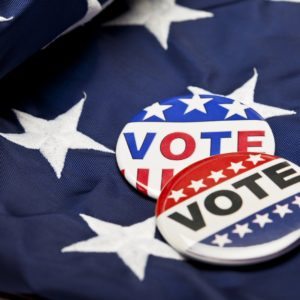This year voters have important choices to make. Beyond whom we will elect to office, how we do so amid the global coronavirus pandemic is at the forefront of everyone’s mind.
Worrying about our own personal safety should not be a concern. But unless Congress acts and acts soon, that may well be on voters’ minds come November.
COVID-19 is exposing vast racial, ethnic, geographic and socioeconomic inequalities right in front of our masked faces. From shortages of testing, appropriate equipment, and determining who gets tested and treated to disparities in the death toll, injustice abounds in our handling of the crisis.
Voting rights and access (or lack thereof) have also been added to this growing list. With coronavirus forcing us to stay home to stay safe, questions of whether and how we will be able to perform this most significant civic duty remain unanswered.
Unfortunately, some lawmakers have chosen to make the administration of our elections a partisan issue, insinuating that one party will “unfairly” benefit over the other if additional provisions are made to ensure more people can execute their civic responsibility and constitutional right.
If providing more Americans better access to their rights is “unfair,” we’ve truly lost our way. Isn’t the proper functioning of our elections at the very core of democracy?
To date, 16 states have postponed their primary elections due to COVID-19. Alaska, Hawaii and Maryland are among states that have opted to conduct their elections almost entirely by mail.
This is the right thing to do amid a pandemic — one that is indeed discriminating against poor and vulnerable populations and people of color in the same way that voter suppression and disenfranchisement do.
At the other extreme, Wisconsin shocked the nation when officials chose to proceed with their primary. This move drew widespread criticism, as voters were forced to choose between jeopardizing their health or not casting their ballot.
There is something alarming about seeing volunteers — as well as ordinary voters — in hazmat suits at the polls. Even more startling is the reckless disregard for public health that led to the decision, as well as the potential number of votes not cast.
Election integrity had been a challenge long before the onset of coronavirus. Georgia, for example, saw dramatic irregularities during the 2018 election. Poll closures, strict identification and exact match measures were just some of the ways the vote was suppressed in several communities.
That is why reauthorizing the Voting Rights Act is so vitally important to ensuring all Americans can access the ballot box and vote. The Voting Rights Advancement Act (VRAA) would create a new standard by which election pre-clearance is required.
Pre-clearance applies to states that need the Justice Department’s approval for changes in their election laws. This can stop voting violations before they begin, meaning less voter suppression, a problem that disproportionately affects communities of color.
Lawmakers must do all they can to protect citizens’ right to vote amid the coronavirus pandemic, even if it means adapting quickly to prevent further voter disenfranchisement or public health catastrophes.
Congress must ensure both the public’s safety as well as fairness and inclusivity in this year’s remaining elections. A positive step forward would be implementing policies that expand voter registration, in-person early voting, no-excuse absentee voting by mail, voter education — and safe in-person voting on Election Day.
Voting should not be a matter of race, political affiliation, or access to the polls. And it certainly should not be a matter of life and death. It’s up to government officials to preserve our democratic systems while prioritizing our health and safety.
The nation is watching and waiting.

